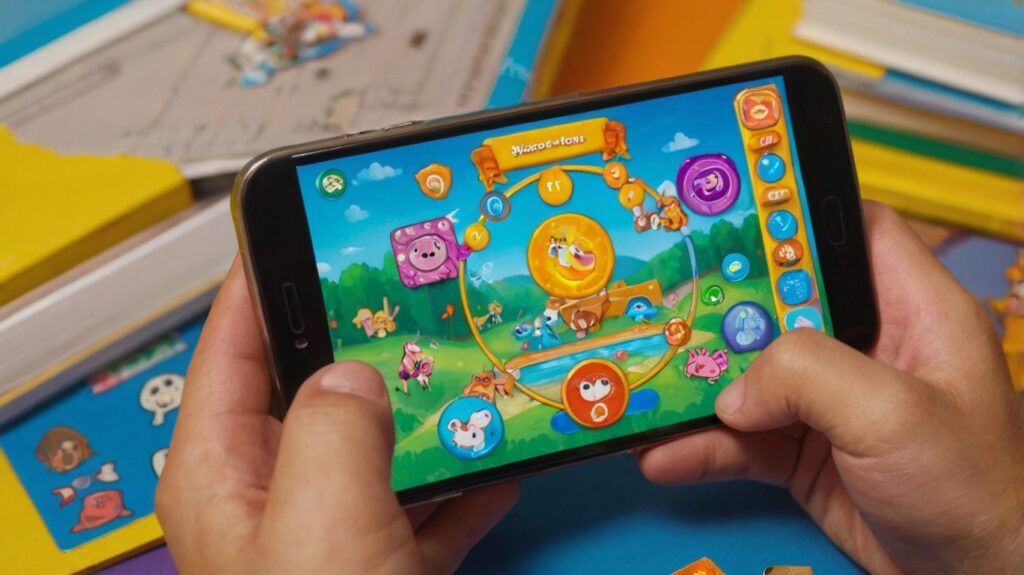
Artificial Intelligence (AI) is transforming education by enhancing its effectiveness, personalization, and engagement. This essay will examine how artificial intelligence (AI) is changing educational games and what it means for learners in the future as well as for teachers and students.
Personalization: Tailoring Learning Experiences
Customizing learning experiences is among the most important benefits of artificial intelligence in educational games. AI algorithms analyse a student’s interactions with the game. It includies their learning style, shortcomings, and strengths. This allows the game to modify its material to suit every student’s unique requirements.
For example, if a learner is having trouble with a certain math idea, the game can offer more practice problems, tutorials, and pointers in that area. On the other hand, the game can provide increasingly difficult issues to a student who is performing well in order to keep them interested and inspired. Every student will receive the assistance and challenges they require to achieve if this degree of customization is implemented.
Enhanced Engagement through Adaptive Learning
A key component of academic success is engagement. AI-driven educational games may adjust to a student’s interests and preferred method of learning, which makes studying more fun. To hold a student’s interest over time, a game could, for instance, employ interactive components, rewards, and narration to draw them in.
AI-powered adaptive learning environments are capable of dynamically modifying task difficulty in response to real-time performance data. This guarantees that pupils stay in their optimal zone of proximal development, where learning is not becoming overwhelming. AI-enhanced instructional games can improve learning results by keeping students interested.
Intelligent Tutoring Systems: Virtual Teachers
Intelligent tutoring systems (ITS) powered by AI function as virtual instructors in educational games. These systems are able to direct students through challenging challenges, respond to inquiries, and give immediate feedback. In contrast to conventional classroom environments, ITS may provide individualized attention, explanations, and support based on the needs of each learner.
The ITS, for instance, can offer a thorough explanation of the problem and walk the learner through the proper answer step-by-step if they make a mistake in a coding game. Students can more fully grasp subjects and swiftly clear up misconceptions with the help of this prompt feedback and individualized guidance.
Data-Driven Insights for Educators
AI in instructional games offers instructors useful data-driven insights as well. Artificial Intelligence can spot patterns and trends in student gaming usage data that aren’t always obvious by examining this data. With this data, educators may pinpoint areas in which kids are having difficulty, develop curricula that are specific to those needs, and much more.
AI can also assist teachers in monitoring the development of each student individually as well as the class as a whole. In the end, this results in more effective teaching techniques and better student outcomes. It enables teachers to customize their lessons to match the varied requirements of their pupils.

The Future of AI in Educational Games
AI in instructional games has a huge and ever-expanding potential. As AI technology develops, increasingly more complex and engaging educational opportunities should be possible. Here are some new developments to be aware of:
- Augmented Reality (AR) and Virtual Reality (VR): Learning environments that are very immersive and engaging can be created by combining AI with AR and VR. Within a virtual environment akin to a game, students can interact with intricate simulations, explore historical sites, and perform virtual science experiments.
- Natural Language Processing (NLP): NLP enables educational games to comprehend written or spoken language from students and react accordingly. More organic and intuitive interactions may result from this, for as conversational agents tutoring students in difficult topics or foreign languages.
- Social and Emotional Learning (SEL): Because AI can sense and react to students’ emotional states, games that support SEL can be created with it. Key social skills, empathy, and emotional control are all things that these games can aid children in developing.
Conclusion
Science fiction is giving way to instructional games that are being altered by artificial intelligence. AI is increasing the effectiveness and accessibility of education through personalizing learning experiences. It alows to improve engagement, generating data-driven insights, and providing intelligent tutoring. With our ongoing exploration and development of these technologies, learning appears to have a brighter future than before. At Melior Games, we develop cutting-edge educational games that motivate and instruct the following generation of students.




